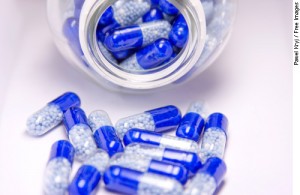It is notorious to sell fake, counterfeit and pirated products worldwide. Formal industry and commerce, which paid high taxes (especially in Brazil), are hampered by unfair competition from opportunists who, outside the law and in total disrespect to the consumer, obtain great advantages, harming the whole society. The important thing for these criminals is to make money - a lot, no matter how.
And when it comes to earning a lot, it is a lot: it is estimated that this illegal market moves around R $ 13 billion a year in Brazil - taking into account only medicines. The most expensive remedies (fighting cancer, for example) and the most sought after (treatment of erectile dysfunction, weight loss, anabolic steroids) are those that suffer most from counterfeiting. And, in fact, the high taxation (on average 34%) on medicines reinforces the immense profitability of crime merchants.
When it comes to medicines, this perverse marketing gains an aggravating factor. In addition to economic and tax issues, we have the damage of what is most important: health. An example of this brutality was harshly presented at the Piracy CPI, in 2013, at the Chamber of Deputies. In one of the statements, a criminal exposed, with great coldness, a terrifying logic. Asked why he forged cancer-fighting drugs, he replied: "They are the ones that make the most profit."
It is important to note that the consumer has an essential role in combating this illegality and immorality. Understanding all stages of the legal process is part of raising awareness. First, it has a very high investment in research, tests and improvements carried out for years; sometimes unsuccessfully, representing the loss of all investment to approve a molecule.
After this stage, another process begins: that of validation by the health and health surveillance agencies, which also consume time, human and financial resources and the registration of trademarks and patents. Once approved, we have the manufacturing, marketing and distribution in complex logistics and, of course, the payment of taxes, licensing fees and social contributions resulting from formal employment relationships. Finally, it is worth remembering that companies engaged in research, manufacturing, marketing and distribution are registered and known, and can be easily found and, if necessary, brought to administrative and judicial levels.
On your side, the criminal. Without any investment, those who have proven acceptance by the market will falsify the medicine. Withholding taxes, no formal employees, taking advantage of underemployment and even slave labor, in addition to using the most precarious facilities, without any concern with hygiene and cleanliness. In short: very little investment, very low risk and high profits. The consumer buys a mock medicine and receives the worsening of the disease, sometimes death. They have already been found in counterfeit arsenic, cement powder, floor wax, paint, talcum powder, nickel, among others.
This alarming situation deserves full attention on the part of society and, of course, the government, at all levels. The integrated action of the public administration bodies, the strengthening of the inspection areas, especially the National Health Surveillance Agency (Anvisa), the constant improvement of pharmacovigilance, which may point to the use of false medicines, the procedures for traceability of medicines, the improvement of the drug purchase process and consumer awareness work are initiatives that must be contemplated, with the objective of reducing criminal action.
The National Forum Against Piracy and Illegality (FNCP), a non-profit civil association, has business associations and companies as members and has been assuming an important role in this process, by supporting inspection actions (Thematic Operations to Combat Crimes against the Tax Authorities and Public Health, organized by the Federal Highway Police on federal roads in conjunction with the Federal Revenue Service, the Federal Police and Anvisa) and awareness raising (Seminar - annual - of the Triple Border, in Foz do Iguaçu, in addition to guides for consumers and government).
These initiatives demonstrate that much remains to be done. The breach of public coffers is impressive, and the damage to health is immeasurable. Public authorities, civil society and companies must persevere in this just and indispensable struggle. Health thanks you.
Edson Luiz Vismona
President of the National Forum Against Piracy and Illegality (FNCP) and the Instituto Brasil Legal, he was Secretary of Justice and Defense of Citizenship of the State of São Paulo
Source: Mail Braziliense





